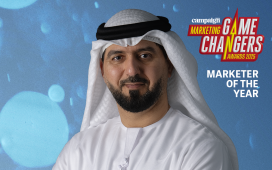If you were to consider how technology has affected your life over the past 10 years, you’d be hard-pressed to stop at just one device or invention. The leaps we have made in this field, from smartphones to digital personal assistants, would have been difficult to imagine coming to life even a decade ago, let alone seeing them released, refined and re-packaged to us many times over. And there’s plenty more to come. As it develops, technology will not only serve as a useful addition but also advance to predict the future, assist our decision-making and provide a real impact, all in one swift functionality.
We are at the dawn of the Fourth Industrial Revolution, where digital technologies
To continue reading this article you need to be registered with Campaign. Registration is free and only takes a minute. Register Now or sign in below if you already have an account.









